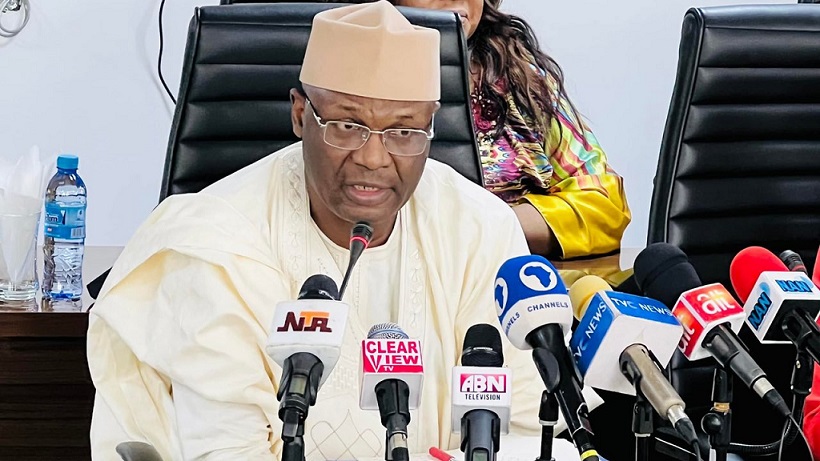2023 Election
Why BVAS Was Not Used For Real Time Results Transmission – INEC
The Independent National Electoral Commission (INEC) has said that the Bimodal Voters Accreditation System…

The Independent National Electoral Commission (INEC) has said that the Bimodal Voters Accreditation System (BVAS) machine was not designed for real time transmission of the 2023 election results for the purpose of collation.
VerseNews Nigeria reports that INEC said this on Tuesday April 11 while defending the election of the presidential candidate of the All Progressives Congress (APC), Asiwaju Bola Tinubu and in response to the petition by Peoples Democratic Party (PDP) and its presidential candidate, Atiku Abubakar,
The INEC’s lead counsel, Mr Abubakar Mahmood, while intervening in the controversy that trailed the alleged abuse of the Bimodal Voter Accreditation System (BVAS), stated that the machine was not designed for real-time results transmission for collation purposes. Mahmoud added that INEC’s Results Viewing Portal (IReV) was not designed and intended for collation of results either.
According to INEC, BVAS is an extention of its effort since 2011 to improve the quality of elections by the use of appropriate technology and technological devices, such as Permanent Voter Card (PVC), Electronic Voter Register (EVR).
INEC argued that the same 25 per cent in 24 states constitutional requirement that applied to the 36 states of the federation, applied to the Federal Capital Territory (FCT), insisting therefore that Tinubu won the election.
Atiku in his evidence provided in the court showed how the presidential election results were manipulated in favour of Tinubu. He claimed that the cancellation of some 51,602 polling units altered the poll results in favour of APC.
In defense to the allegation, the APC legal team told the court that Tinubu’s victory was justified in accordance with the presidential election conducted in substantial compliance with the Electoral Act, 2022.
DON’T MISS: INEC Announces Date To Issue Certificates Of Return To Governor-Elect, Others
APC also claimed the alleged unlawful nomination of its vice presidential candidate, Senator Kashim Shettima, and the allegations of conviction involving the president-elect were issues outside the jurisdiction of the election petition tribunal.
INEC, while maintaining the sanctity of the February 25 presidential election, insisted that the declaration of Tinubu as president-elect was in total compliance with the constitution, Electoral Act, 2022, and INEC’s Regulations and Guidelines for the Conduct of Elections 2022.
Responding to the petition filed by Atiku and the PDP, INEC claimed, “No act of non-compliance (if any) was substantial enough to have affected the outcome of the election or result declared.”
In the petition filed by Mahmoud, the electoral umpire stated that the election of Tinubu was valid and not marred by reason of corrupt practices, as alleged by the petitioners. It pointed out that at the time of the election; Tinubu was qualified to contest, having met the requirements of the Constitution of the Federal Republic of Nigeria 1999 and the extant Electoral Act.
INEC stated, “That the summation of the result declared is consistent with the number of duly accredited voters. There was no act of infraction, as alleged by the petitioners, that is substantial enough to nullify the election.”























You must be logged in to post a comment Login